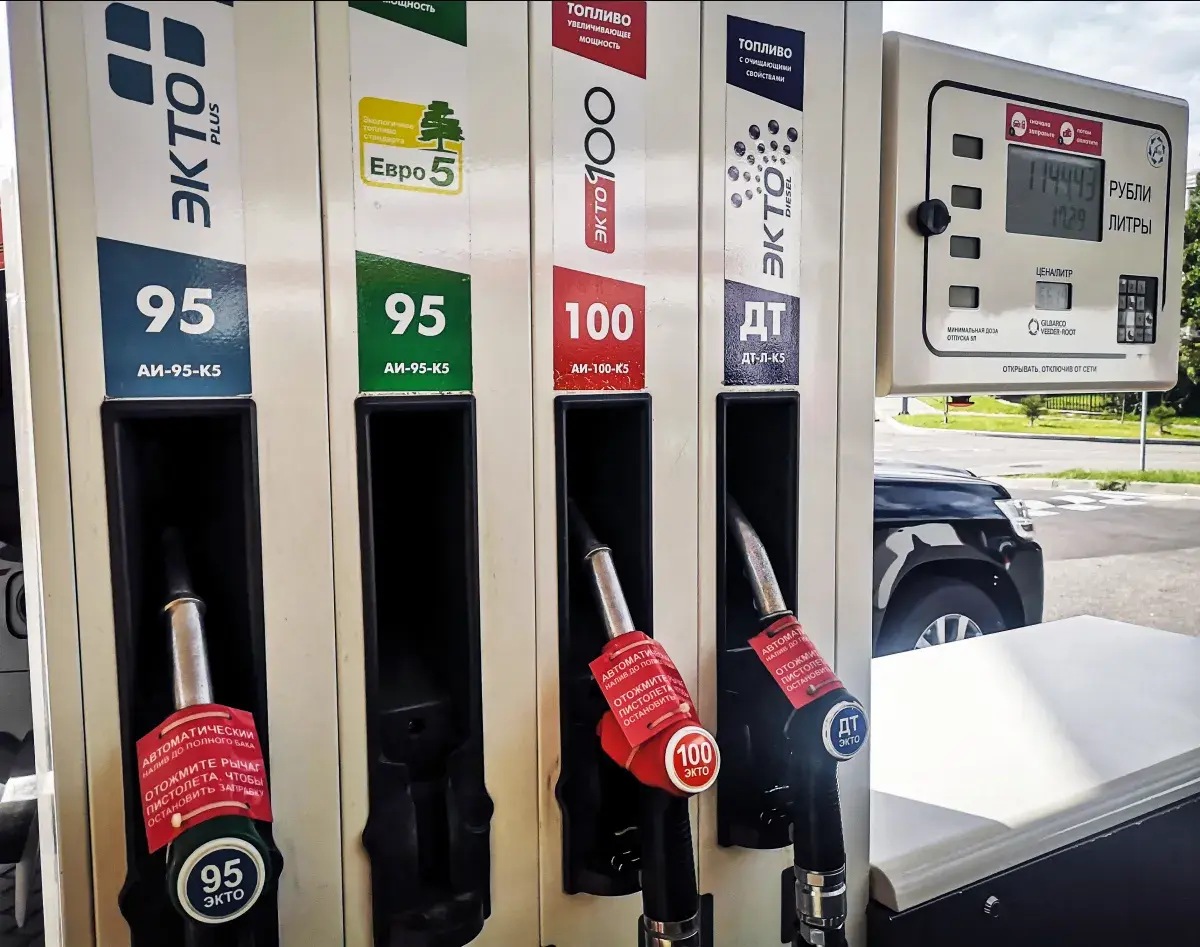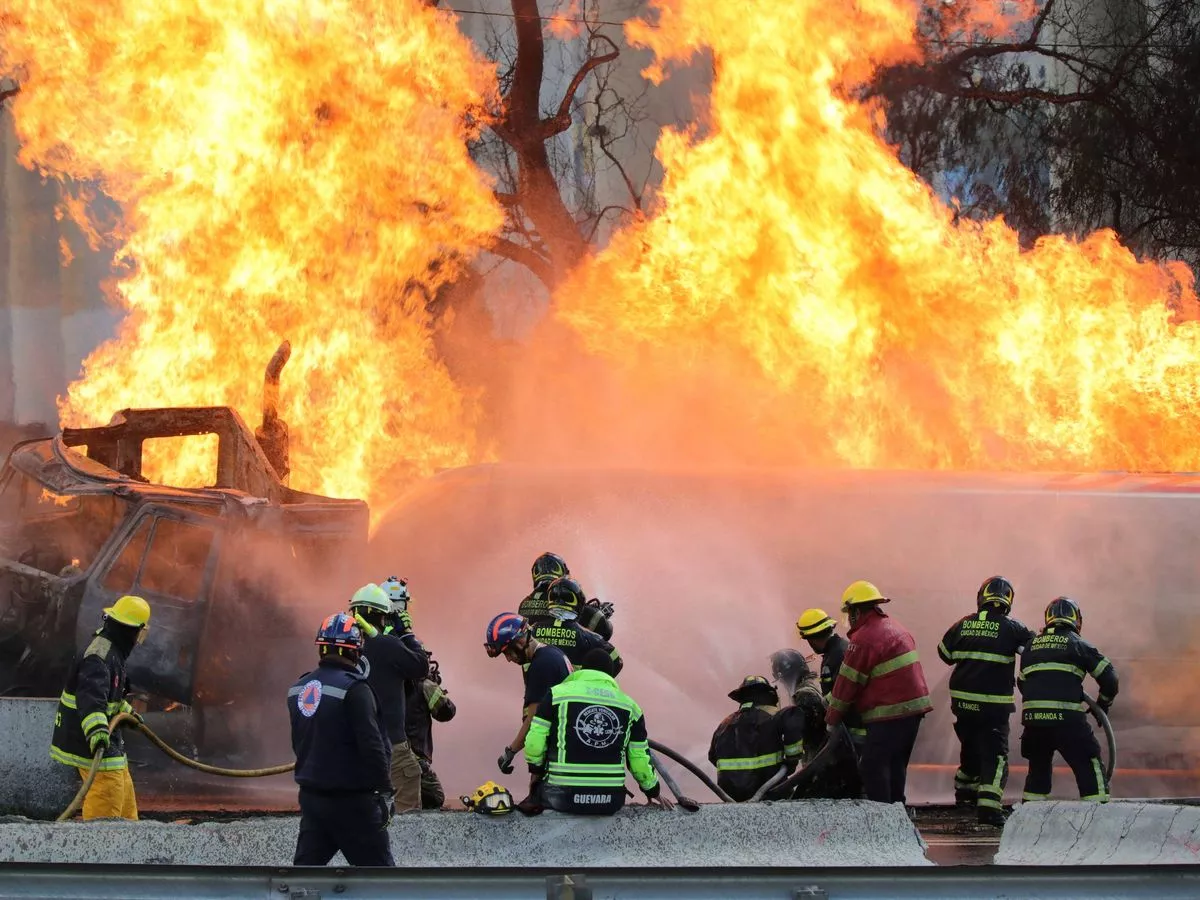
Russia is set to import gasoline from Asia to offset a growing fuel shortage since Ukrainian attacks have disrupted nearly 40 percent of the country’s oil refining capacity, it has been reported.
Business daily Kommersant said Russia will look to China and other allies in Asia for gasoline following Ukrainian drone and missile strikes on Russian refineries, some of which have been forced to halt production indefinitely.
Berlin-based energy expert Thomas O’Donnell told Newsweek that Ukraine is now producing and successfully launching drones at oil facilities faster than Russia’s ability to repair them.
Newsweek has reached out to Russia’s Independent Fuel Union, which deals with motorists’ concerns over gas.
Why It Matters
While Russian state media does not criticize the Kremlin, there is some leeway in its coverage of economic problems and outlets have been reporting the long queues for service stations across the country that have caused motorists’ anger.
In an energy superpower, shortages at the pump pose a political problem for Vladimir Putin who has tried to portray his aggression in Ukraine as not impacting the daily lives of Russians.
What To Know
Ukrainian drone strikes have hit Russia’s oil refining industry hard, forcing refinery shutdowns and restrictions on how much gas motorists can purchase.
Data from the analytics firm Ciala said that at the end of September, nearly 38 percent of Russia’s oil refining capacity—around 338,000 tons of crude per day—was offline.
Around 70 percent of the outages were due to drone strikes which knocked out a quarter of Russia’s total refining capacity—about 236,000 tons per day.
Since August, Ukraine has targeted at least 16 of Russia’s 38 oil refineries, according to the Financial Times, with Russian diesel exports at their lowest level since 2020, citing research group Energy Aspects.
In September, four refineries halted operations after drone attacks, including the Kirishi “Kinef” plant in Leningrad region—the second-largest in Russia—and Rosneft’s Ryazan refinery, which is among the country’s top five.
O’Donnell told Newsweek that Ukraine’s first drone strikes on refineries two years ago proved they could cause damage but it was not clear if Kyiv had sufficient drone production capacity to outpace Russia’s ability to repair the sites.
Now with more sophisticated tactics and hitting refineries at ever longer distances, Ukraine was showing it was overwhelming Russia’s capacity to defend the refineries and to repair them, he said.
As well as the price rises and annoyance for Russian motorists, Ukraine’s strikes will also hurt transportation inside Russia, whose trucks and railways are heavily dependent on diesel, said O’Donnell.
“Not only is the supply down, but the supply is being affected in the regions contiguous with Ukraine, where it would mostly come from, so now it has to come from farther distances,” he added.
In the most recent incident, a fire broke out early Wednesday at the Novo-Yaroslavsky oil refinery in Yaroslavl region, northeast of Moscow, local authorities reported.
Gas stations in some parts of Russia and occupied Crimea have limited sales to no more than 30 liters per customer and more than 20 regions across the country now face shortages.
On Tuesday, a Russian government decree extended until the end of the year a temporary ban on the export of gasoline outside the country and the Kommersant report suggested that Moscow’s trading allies in Asia may be asked to step in, including China, South Korea and Singapore.
Gasoline imports from Belarus and lifting import duties on fuel entering through the Far East and federal budget subsidies are also measures that are aimed to ease the crisis, Kommersant reported.
What People Are Saying
X user Anna from Ukraine posted: “Remember when Russia claimed to be an energy superpower? Those days are gone! Now 50 out of 83 Russian regions face severe gasoline shortages.”
Berlin-based energy analyst Thomas O’Donnell, Global Fellow of the Wilson Center, told Newsweek gas shortages in Russia: “not only annoy people but also affect transportation inside the country. Diesel especially, is necessary for the transport of both trucks and railways in Russia, which is heavily dependent on diesel locomotives.”
What Happens Next
The Russian government decree extending the export ban is likely intended by the Kremlin to send the message that gas shortages are being taken seriously. However, with the prospect of any peace deal in Ukraine distant, Kyiv is likely to continue its drone strikes on Russian oil infrastructure.



